Don't be blinded by the RTX 3060's 12GB memory, Nvidia's RTX 3060 Ti is still the better buy
They may sound similar, but these two graphics cards are very different gaming beasts.
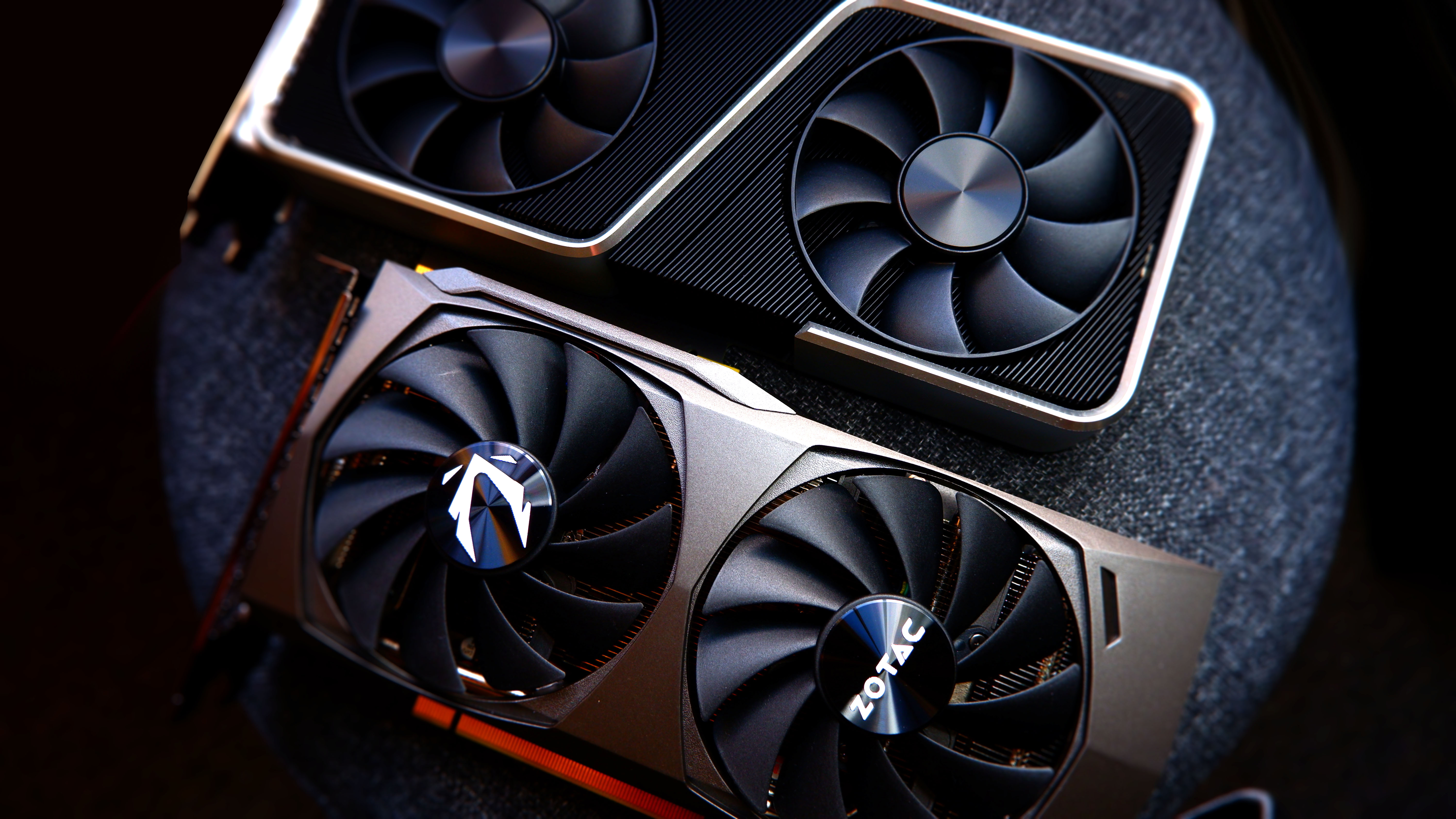
Take one look at the Nvidia RTX 3060 12GB and Nvidia RTX 3060 Ti and you'd assume some parity between the two. They both share a name, an architecture, and reside under $400 (just). But make no mistake, these cards couldn't be much more different, at least not while still flying under the same 30-series banner.
If you're familiar with the specifications of these two chips, you'll already know where this will end up. But if you're just starting to look into your next GPU upgrade, you might be a little uncertain as to which of these two cards is your best bet.
The RTX 3060 Ti is a $399 card that comes with the GA104 GPU, which is effectively the same silicon as the desktop RTX 3070 but pared back for the cheaper option. The top configuration of this chip, with a heady 6,144 CUDA Cores, is found in the mobile RTX 3080. So we're talking about a chip that exists, in some fashion, from the RTX 3060 Ti to the RTX 3080.
For our humble RTX 3060 Ti we're looking at a more modest 4,864 CUDA Cores. Yet even coming in at the lower end of the spectrum does have its benefits. Namely memory bandwidth, TMUs, and ROPs. I won't get into all the specifics, but this is all stuff that the RTX 3060 Ti has in swathes, and more than you might expect for a card of its price.
The 256-bit bus attached to the larger GA104 die allows the RTX 3060 Ti to offer 448GB/s bandwidth total.
Which brings me onto the brand new RTX 3060 12GB for $329. This graphics card is built atop the new GA106 GPU, which comes with a maximum of 30 SMs and 3,840 CUDA Cores. That full specification is available only in the mobile RTX 3060, while we're looking at a trim 3,584 CUDA Cores on desktop.
| Header Cell - Column 0 | RTX 3060 12GB | RTX 3060 Ti |
|---|---|---|
| CUDA Cores | 3,584 | 4,864 |
| SMs | 28 | 38 |
| Boost Clock (GHz) | 1.78 | 1.67 |
| Base Clock (GHz) | 1.32 | 1.41 |
| Tensor Cores | 112 | 152 |
| RT Cores | 28 | 38 |
| ROPs | 48 | 80 |
| TMUs | 112 | 152 |
| Memory | 12 GB GDDR6 | 8 GB GDDR6 |
| Memory bus | 192-bit | 256-bit |
| Memory bandwidth | 360GB/s | 448GB/s |
| Price (MSRP) | $329 | $399 |
The memory bandwidth is also a slimmer 192-bit configuration, which makes for 360GB/s in available bandwidth.
Keep up to date with the most important stories and the best deals, as picked by the PC Gamer team.
So while we're looking at 8GB of GDDR6 on the RTX 3060 Ti, a slight reduction on that found on the RTX 3060 12GB, the greater bandwidth of the Ti card means the memory is more widely available to the GPU in operation.
The two cards offer vastly different performance as a result, too. In our testing, at 1440p, we're seeing the RTX 3060 Ti delivering 35 percent higher frame rates on average. That's not a bad return for a card with a 21 percent higher price tag.
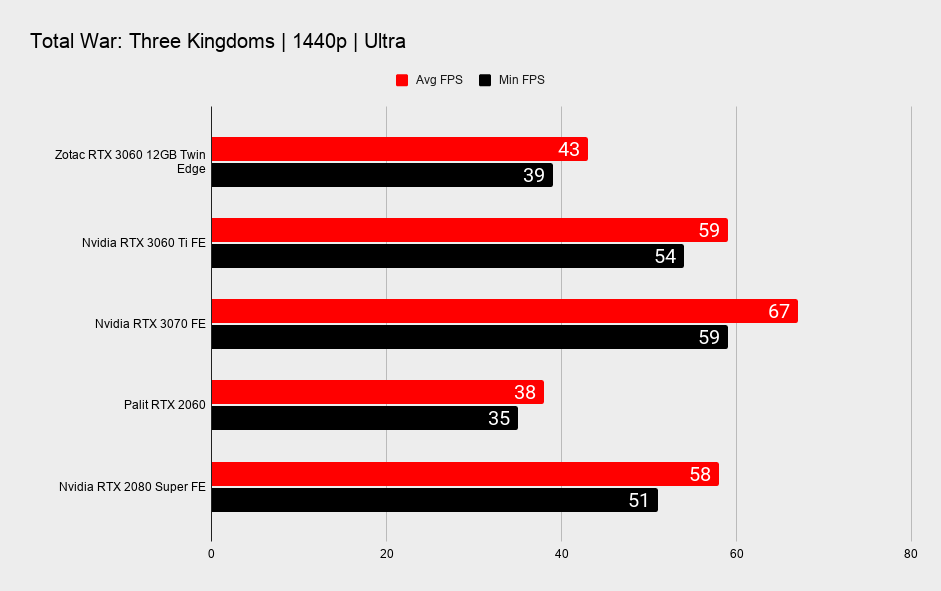
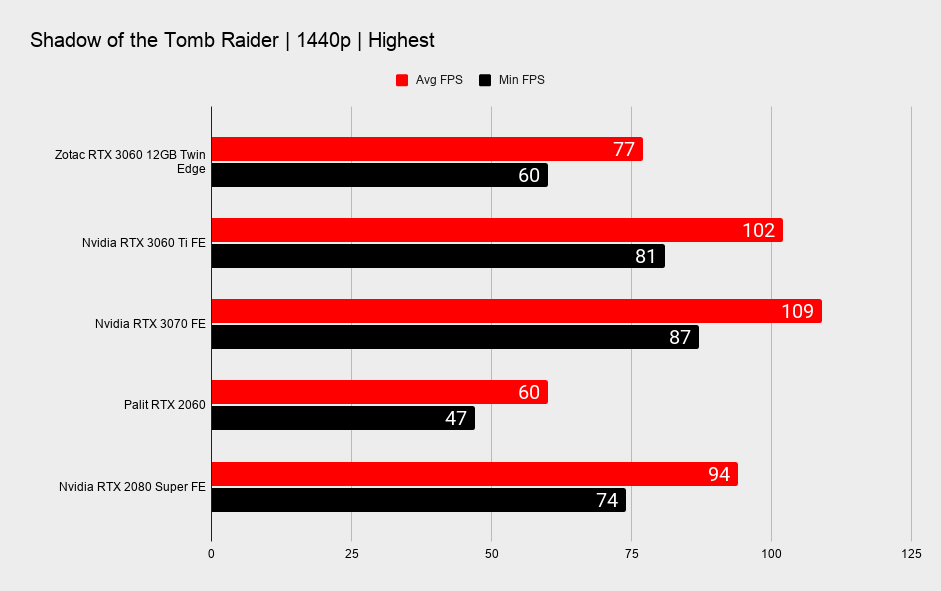
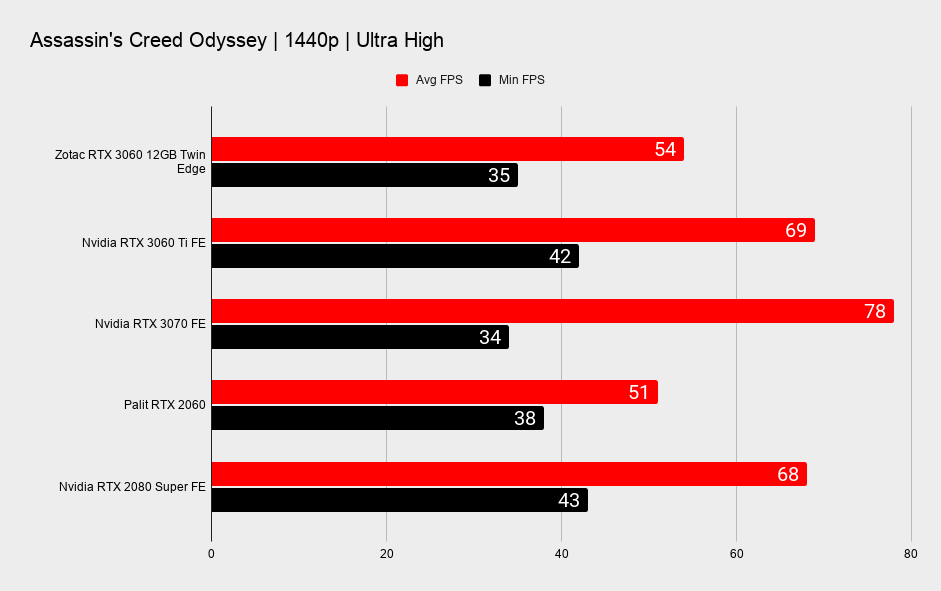
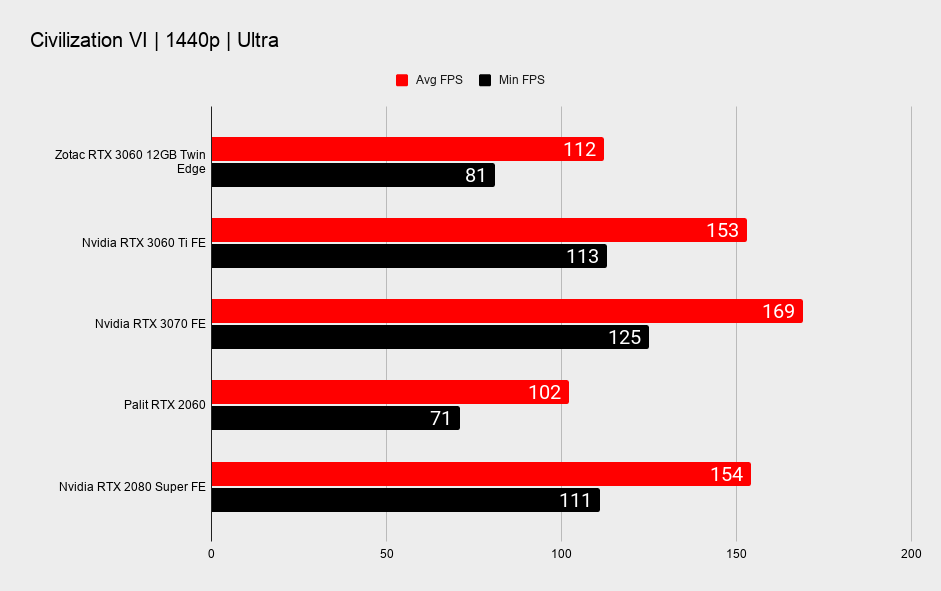
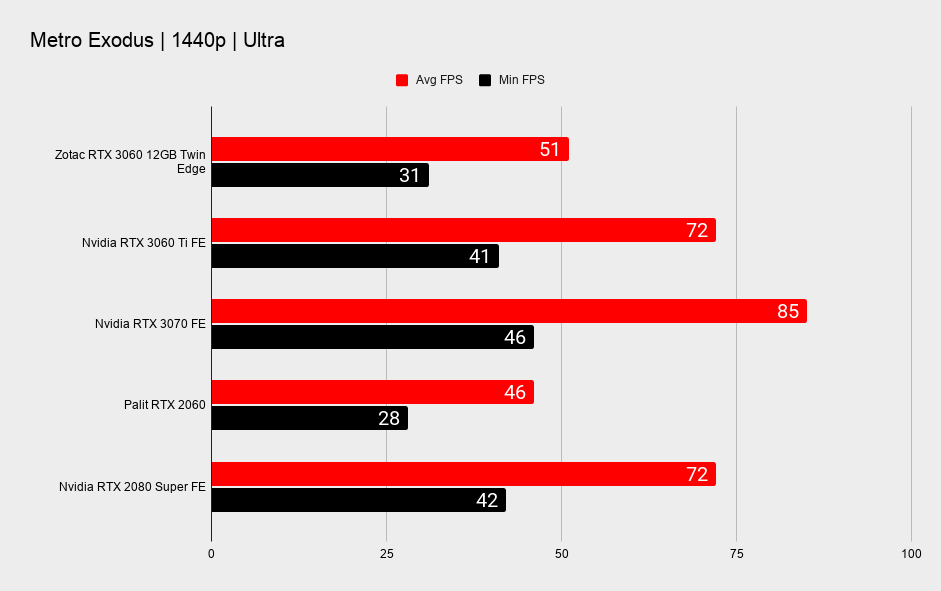
With the arrival of the RTX 3060 12GB, we're steadily drifting away from the expensive high-end graphics cards and into some more affordable garb. Creeping ever closer to that point where no matter your budget, you can pick up the latest silicon.
And that's absolutely a much better position to be in for all PC builders, at least once GPUs aren't so hard to come by and prices no longer inflated.
But when it comes to a choice between the two, don't be fooled by the larger memory capacity on the cheaper card. It's not a golden goose for gaming performance at that grade, even if it's a nice touch for a card that may have felt a little slim with only 6GB of VRAM.
I appreciate that 'buy the better graphics card' hardly seems like expert advice, and even less so at a time when you'll have to move quick to secure either option at MSRP. But if you're not sure whether your next upgrade should be the 12GB RTX 3060 or 8GB RTX 3060 Ti, saving that little bit more, or smartly pulling $70 from elsewhere in your budget, for the RTX 3060 Ti will go a long way in increasing your gaming PC's overall gaming performance.

Jacob earned his first byline writing for his own tech blog. From there, he graduated to professionally breaking things as hardware writer at PCGamesN, and would go on to run the team as hardware editor. He joined PC Gamer's top staff as senior hardware editor before becoming managing editor of the hardware team, and you'll now find him reporting on the latest developments in the technology and gaming industries and testing the newest PC components.

